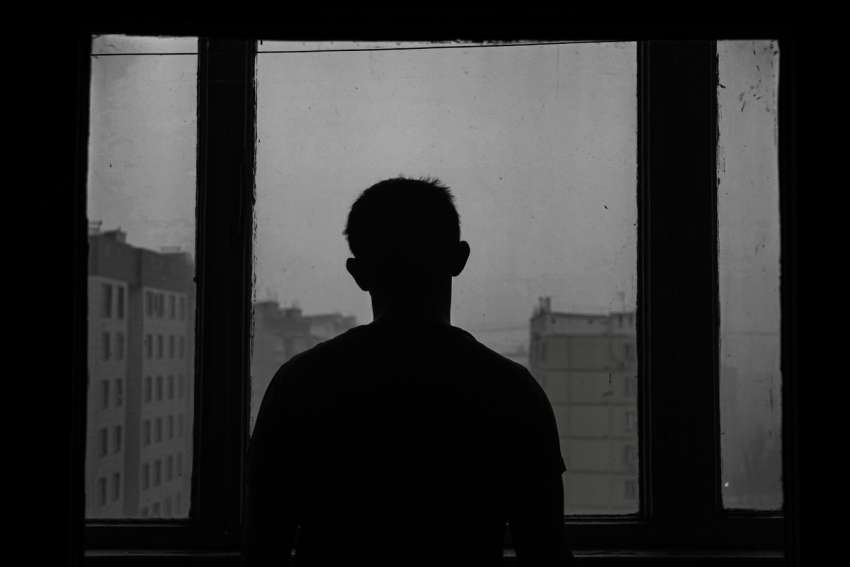What was he doing wrong? Why the sadness that kept coming in waves? For a moment, the veil lifted and Al saw the grey anguish carved into James’s face.
Was James not getting grief right? How could it be so agonizing, relentless and unfinished? James felt he hadn’t even started, and yet felt he’d always been and always would be grieving.
The unbearable weight of grief is borne among us at all times, often hiddenly. Plenty of programs, therapies, ministries and medications are on offer. We commonly hear that “grief is a process.” And what is the purpose of all this grief? Is the goal of grieving to cope with loss so we can keep functioning?
Getting to our grief is itself a Herculean labour. We might have to hack our way through shame (for feeling sad and lost), hurt (for being abandoned) or anger (for needing someone so much). No human relationship is uncluttered, and the clutter can keep us away from the grief.
Grief can’t be rushed, or avoided, because it has a work to do, a sacred work. As a divinely sent messenger, “it will not return to me empty, but will accomplish what I desire and achieve the purpose for which I sent it” (Isaiah 55).
What is grief’s purpose? It doesn’t take away the loss or “make sense” of it. We wouldn’t be fooled by such tricks. We know death, for example, is permanent and doesn’t explain itself.
When we grieve, it’s because something is gone and isn’t coming back. Nor are we. The grieving one will never be the same person again. Grief is perfectly set up to allow this to happen; it’s not in our control. We must say good-bye to ourselves, the people we knew before and the way we were in the world. Everything is changed, especially ourselves.
Grief makes sorrow personal, so that the real person has to emerge. It isn’t a matter of finding and following the right program or technique — work or stop working, do a certain type of counselling, allow six months or 12. Until something is born in the grieving person the grief won’t be resolved. The healing itself is the measure, accomplished as the grieving person becomes more real. Grief works in us to make us more who we are. The old illusions, perceptions and understandings, the way we cope in the world, no longer work. Something new can come forth.
In an old comedy, the movie’s resolution turns on a surprisingly poignant moment. The sorrowing hero decides he should become a playboy so he’ll never suffer grief again. “Like you,” he says to his playboy friend, who’s found him at the bar where he’s drinking his sorrow away. This breaks open the friend’s empathy and he replies, essentially: “Don’t you realize that, like everybody else, all I really want is someone to hold me and tell me everything’s going to be all right?” Suddenly an arm embraces the friend, and the voice of the old drunk sitting beside him says gently: “Everything’s going to be all right.” All three have finally arrived at their grief and discovered themselves. There, an encounter can happen.
Many saints show us how grief can find and help create the person we’re made to be. Their witness doesn’t deny the anguish of loss, but rather understands its gravity, out of which a new birth can come. St. Maria of Paris, for instance, a refugee from early Soviet chaos who arrived in Paris with her husband and three children, left us a drawing of her young daughter Anastasia created as the little girl was dying from influenza. Herself a young woman who had suffered much violence and loss, Maria was changed by this terrible sorrow. Did the look of love she exchanged with her innocent suffering daughter, so tangible in her drawing, help her to be held in the look of love which is the inner life of God (the Trinity)? It certainly helped her to become a woman who radically, despite the risks entailed in living during dangerous times, and at great personal cost even unto death, served the needy out of love for them and God.
Why is it that grief, sorrow and loss are essential in becoming ourselves? Because Christ’s love for His Father takes Him there, at His Passion as throughout His life. “Then He said to them, ‘My soul is sorrowful even to death’ ” (Matthew 26:38).
Not that grief and sorrow are to be worshipped. They are handmaids, because Christ makes them in Himself the way to resurrection.
(Marrocco can be reached at mary.marrocco@outlook.com.)


